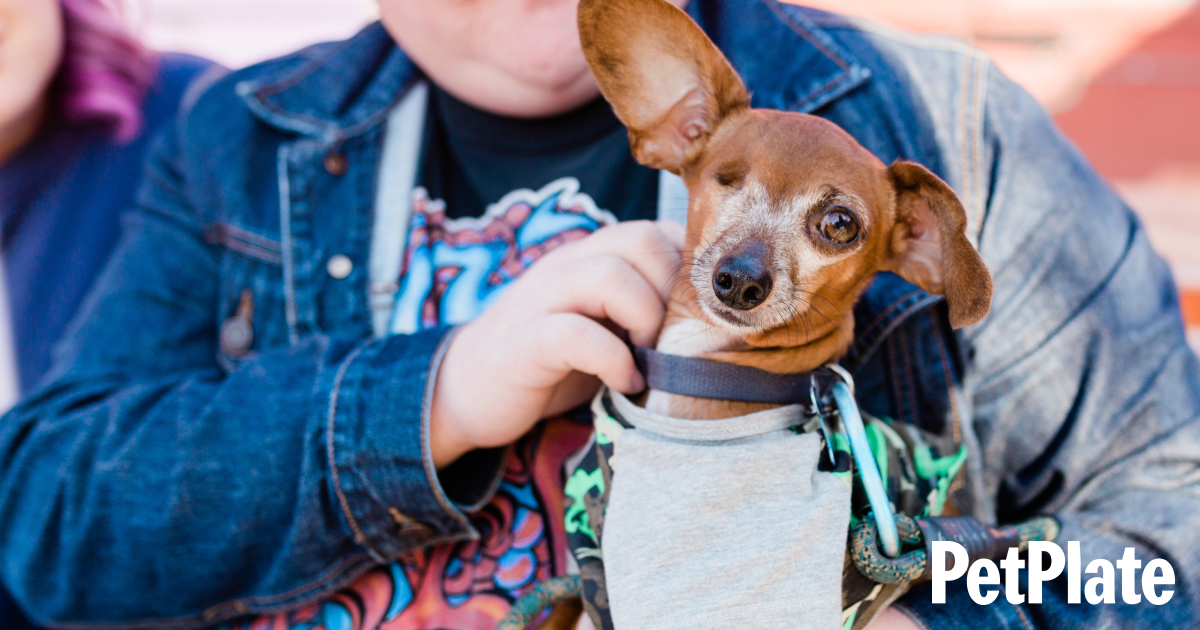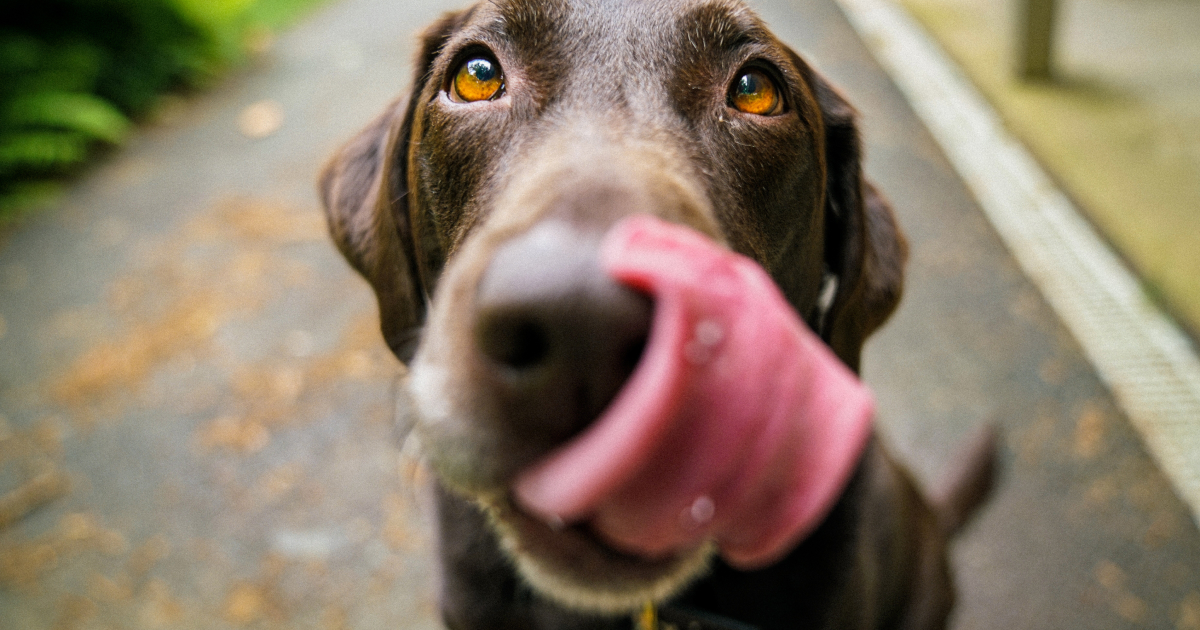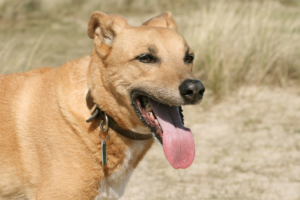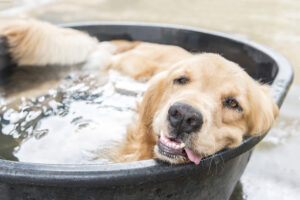Special Needs Dogs: What to Expect When Adopting a Special Friend

Despite the challenges they face, special needs dogs have an indomitable spirit and zest for life. And when placed in caring homes, they reward support and affection with unconditional love and loyalty.
There are additional responsibilities that come with caring for a special needs dog, but the bond that forms is like nothing else.
Special Needs or Specially-Abled Pets Day
The ASPCA estimates that 6.5 million dogs and cats enter shelters, rescue centers and sanctuaries annually. Ultimately, about a quarter of these animals will be adopted, and the odds are worse for special needs animals that require extra care and attention.
In response to the plight of special needs dogs and cats, May 3rd has been officially designated National Specially-Abled Pets Day. This observance aims to raise awareness of the tremendous number of special needs pets awaiting adoption across the country.
These loving animals suffer from a wide variety of chronic physical or mental health conditions. But what they need most is a good home where they can be looked after by kind, caring and patient families.
If you’re considering adopting a dog, strongly consider these unfairly overlooked creatures. They deserve to be cherished and pampered, not abandoned and forgotten.
What is a “Special Needs” Pet?
All dogs and cats have fundamental needs, including food, water, shelter, security, and companionship. Special needs pets are no different, but they also have physical, psychological or behavioral issues that require extra attention and intervention.
Learn more about the most common disabilities or health conditions experienced by special needs dogs, and how you can keep your new companion happy, healthy, and safe.
Food allergies

Dogs with food allergies may develop gastrointestinal distress when their allergy is triggered. They may scratch or lick certain areas incessantly, and inflammation or redness in the ears or the rectal area are common indications of an allergic reaction.
When you know your dog has food allergies, you need to monitor their diet carefully to make sure what they eat is allergen-free yet highly nutritious. PetPlate meal plans include only the highest-quality ingredients, and are designed by vets to be nutritionally complete and balanced. They also include novel proteins like venison and lamb, if your dog has an allergy to poultry or beef.
Diabetes
Obesity is the leading cause of diabetes in dogs. The most common symptoms of this disease include excessive water drinking, frequent urination and weight loss that may not be linked to their eating habits.
Once a veterinarian has diagnosed diabetes, your dog will need regular insulin injections to help them control their blood sugar levels. You’ll also have to feed them a special diet recommended by your vet.
Hearing impairment

Some dogs lose their hearing from traumatic injuries or chronic ear infections, while others are born with a genetic defect that prevents them from hearing from birth. Fortunately, hearing impairment is not associated with other health problems in dogs. However, it does raise some safety concerns (especially when the hearing-impaired dog is outside or in an unfamiliar environment).
As their protector, your job will be to teach them how to respond to visual and touch-related signals that can replace auditory clues, so you can help them avoid any risks they might face when they’re outside the house. They should also be leash trained, and you should keep them on their leashes at all times when you are in an unprotected or uncontrolled environment.
Behavioral issues
Some dogs may display behaviors that humans find unpleasant, distracting, or even frightening. Some of the most common include aggression, constant barking, destructive chewing, urinating or defecating in the house, howling at night or biting during play.
Sadly, few people are willing to adopt dogs with previously identified behavioral issues. In reality, these animals can make wonderful pets if you’re willing to seek the assistance of a trained professional who can help you develop strategies to reduce disturbing behavior or possibly eliminate it altogether. With the able assistance of a Certified Applied Animal Behaviorist (CAAB or ACAAB), a veterinary behaviorist (Dip ACVB) or a Certified Professional Dog Trainer (CPDT), your dog’s behavioral issues can be successfully managed most of the time.
Even without consulting with an expert, you should be able to identify some of the triggers that cause your dog to behave in a troublesome manner. You can then take steps to prevent their exposure to those response-inducing stimuli.
Visual impairment

Dogs may be born without sight or may suffer partial or substantial visual impairment as a result of injury or disease. Happily, dogs who can’t see will learn to adjust over time, relying on their other senses to compensate for their loss.
To properly care for a blind dog, you should:
- Create clear and unobstructed walking lanes throughout your home
- Remove or elevate objects or furniture with sharp ends (or cover the ends)
- Put rugs or textured mats in front of food and water dishes, beds, furniture, etc., to provide sensory clues as markers
- Attach bells to the collars of other pets if your new dog dislikes being surprised by other animals
- Let your dog know where you are by talking to them frequently
- If they will be outdoors unsupervised, clean up yards or patios to make sure any potentially hazardous objects are removed.
Victimized by animal abuse
Abused dogs deserve to finally live with a family that loves them. You must treat them with kindness at all times and be willing to adjust your behavior as much as necessary to ensure you don’t trigger their fear, anxiety or PTSD.
If you have a dog that has been severely neglected or mistreated, you should:
- Keep them in a calm environment that gives them plenty of personal space
- Speak to them gently at all times and avoid sudden movements that might startle them
- Rely exclusively on positive reinforcement if you decide to train them
- Don’t try to pet them while standing over them or directly in front of them; always reach in to stroke from the side or from behind
- Create quiet and private safe spaces where they can retreat if they’re feeling stressed or anxious
- Give them a oodles of loving attention, which is essential if they are to learn to trust humans again
If your new dog has continuing behavioral problems, consulting with or hiring a dog trainer with experience working with abused animals and their families would be wise.
Physical disability

Dogs with physical disabilities include those partially or completely paralyzed and those missing a limb.
If your adopted dog is missing a leg, you must make sure they don’t overdo it and get too much exercise since that will put excessive strain on their remaining limbs. You must also be extremely patient with them, as they won’t be able to move as rapidly or as nimbly as dogs with four legs. You must also control their diets to prevent them from becoming obese, so they don’t have to carry stressful extra weight.
When dogs are suffering from paralysis, it will be up to you to keep them mobile. This could mean carrying them around or moving them manually, or outfitting them with a wheeled cart or wheelchair to help them move on their own if they still have use of their front or back legs.
Neurological issues
Neurological disorders in dogs cause impairment or malfunctioning in the brain, spinal cord or peripheral nervous system. They can produce a host of debilitating symptoms, including seizures, an unsteady gait, trembling or shaking, partial paralysis, a loss of sensation, incontinence, and a decline in muscle control.
To help dogs with neurological conditions maintain a good quality of life, you may need to:
- Use slings, harnesses or carts to help them stay upright or move around
- Take them for walks several times a day to avoid urination and defecation in the house
- Put down carpets or rugs to stop them from slipping on polished floors
- Use absorbent pads to protect their bedding from being soiled
- Change their laying or resting position every 4-6 hours if they have trouble doing that themselves
- Consult an animal rehabilitation expert who can help them improve or maintain their mobility
Neurological disorders are serious conditions that a veterinarian must diagnose. They can inform you about treatment options that could improve your dog’s quality of life.
Advanced age

Senior dogs make wonderful pets and will reward you with extra helpings of love and loyalty when you offer them the same.
When you adopt a dog in their sunset years, you may have to adjust your expectations about living with a dog. For example, they may need to walk much slower if they have joint pain. You may have to feed them less than you would a younger dog since their inactivity can leave them vulnerable to obesity. They will need to be taken to the vet for checkups more frequently, and you may have to administer medications or otherwise provide them with home treatments to deal with age-related infirmities.
Chronic or terminal illness
Shelter dogs in their final days may be left to suffer in silence and die alone if no one arrives to give them a nice home. You could be the one who prevents them from experiencing this tragic fate if you’re willing to open your heart and your home to a loving creature who needs your love desperately.
Depending on the specifics of your dog’s condition, your veterinarian can help you develop an end-of-life care program that ensures your dog’s needs will be attended to in their entirety. You can be there to smother them with kindness and empathy while tending to their physical, psychological and emotional needs. If their condition deteriorates too much, you could transfer them to pet hospice care, where you could continue to visit them and love them every day.
Special Abilities of Special Needs Dogs
You might see a special needs dog as a victim. But they won’t see themselves that way at all.
In the face of difficult obstacles, they remain resolute and resilient, tirelessly striving to overcome their limitations. If kept in a loving and supportive environment, they will reconnect with the world by developing their senses, adopting new coping strategies, moving about more cautiously, focusing more intently on their surroundings, and learning to detect subtle clues from humans or other animals that will show them where to go and what to do.
Special needs dogs are perfect in their own unique way. As long as they have people to care for them, they will continue to live enthusiastically and with immense enjoyment. Their most special ability is their capacity to make you love and appreciate them with as much passion and devotion as you’ve loved and appreciated any other animal in your life.
How to Prepare for a Special Needs Dog

Taking in and caring for a special needs dog can be time-consuming, emotionally exhausting and expensive. They often require attention, understanding and compassion, and extra healthcare services. Before you bring them into your home, you’ll need to prepare yourself and your family for the important responsibilities you’ll be assuming so that nothing will come as a surprise.
Talk to a Vet
Your veterinarian can help prepare you for the challenges that accompany a decision to adopt a special needs dog. They can tell you more about the specifics of the dog’s condition, explain to you how their treatment regime will work, inform you about preventive healthcare services, and provide a realistic assessment of the amount of time and money you’ll need to invest to keep your dog healthy and thriving.
Consider Home Modifications
Many special needs dogs have issues that affect their mobility and control over their body or their ability to accurately perceive what is occurring in their surrounding environment. Consequently, you may need to customize their living spaces so they can move around safely and without you having to worry that they will become injured or be forced to perform tasks they find difficult. There may also be parts of your home you’d prefer to keep off limits to your canine friend for your convenience as much as theirs.
By adopting an empathic approach that looks at the world from their perspective, you should be able to create indoor and outdoor spaces that will make them feel secure and at ease, regardless of the specific health issues they face.
Budget for Supplies
Before you adopt a special needs dog, you should compile a thorough and comprehensive list, with costs included, of all the supplies you’ll need to care for them properly. Your list could include things like special foods, medications, medical supplies, mobility devices, items required to make home modifications, hygiene products, and so on. You’ll also want to include any costs you’ll incur for medical care and possibly for miscellaneous items like transportation (if you’ll be taking the dog back and forth from the vet) or heating and air conditioning (if your dog needs a temperature-controlled environment).
Once you’ve compiled this list, based on your research and what you’ve learned from your veterinarian or from the rescue center or shelter where your dog has been living, you’ll know exactly what kind of financial investment adopting a special needs dog entails. You can then assess whether or not you can afford to bring a particular animal into your home.
Rally Support
When you bring a special needs dog into your family, each one of you should be happy and excited. Each family member should participate in your dog’s care program to some extent. In addition to making practical contributions, everyone (including your youngest children) should be prepared to modify their behavior to make your new dog feel at home and relaxed.
Your special needs dog can enrich your life even as you enrich theirs, as long as everyone is united and ready to welcome them with gentle words and loving embraces.
Frequently Asked Questions
Can a dog have learning disabilities?
Dogs can be diagnosed with the canine equivalents of conditions like ADHD, OCD, and anxiety disorders, which can interfere with their learning. Younger dogs may also experience developmental delays.
Can a dog have Autism or Down Syndrome?
Dogs cannot be born with Down Syndrome. However, they can inherit a condition known as canine dysfunctional behavior (CDB), which causes learning problems similar to those associated with autism.
A Special Relationship and a Lifetime of Memories

Adopting a special needs dog is not an act of charity. It is a compassionate decision, yes, but it is one that will bring you tremendous enjoyment and beautiful memories that will stay with you for the rest of your life.
The love you give your differently-abled canine companion will be accepted and returned 10 times over, and within a short period of time, their ‘special needs’ designation will fade from your mind. They will no longer be your special needs dog but just your dog, and you will never regret your choice to adopt a loving creature that so many others had passed by.


